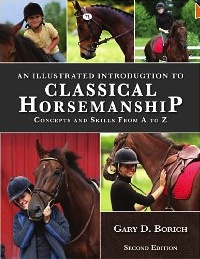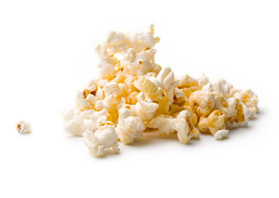Cinderella Man: Classic Mashed Potatoes
Year Released: 2005
Directed by: Ron Howard
Starring: Russell Crowe, Renee Zellweger, Paul Giamatti, Craig Bierko
(PG-13, 144 min.)

"The mass of men lead lives of quiet desperation." Henry David Thoreau
Put aside the popcorn and feast on some fillet mignon in a film where quiet dignity and grim determination define a real hero. Cinderella Man has no invading aliens or comic book shenanigans -- only the quiet desperation of the Great Depression.
Are you ready for it? A movie without a single explosion or car chase, a love story featuring a married with children couple completely devoted to each other? Can you even walk into a darkened movie theater with the vague perfume of coconut oil, stale beer, and hickory smoke lingering about you and partake of something that is not filled with wise-cracking animals, foul-mouthed comics, or dysfunctional families?
On the other hand, if you are getting tired of the endless sequels, prequels, and the warmed over classics and sitcoms that have come to be the steady diet of risk adverse Hollywood, then purchase a ticket to Ron Howard’s finely craftedCinderella Man.
I hope I can do justice to what is clearly one of the best movie I’ve seen in 2005. It’s almost as hard to write a review about a great film as it is fun and easy to pan a miserable one. And to play a truly good, decent and honorable man in an age that seems inextricably lured to the magnetism of evil is no small task. Russell Crowe accomplishes it with aplomb. It has been said that his thuggish antics in real life, most recently the phone-throwing incident in New York, which unfortunately coincided with the movie’s release, have hurt at the box office. First of all, if we boycotted movies because of the behavior of the stars, we’d probably be relegated to watching Lawrence Welk reruns on the TV. Furthermore, it is a real tribute to his acting skills that thug Russell can put in a performance that resonates with gut wrenching goodness in all its dimensions.
His is a face handsomely homely in a Richard Burton kind of way, and Russell Crowe can do with his eyes, body language and facial expressions what Burton did with the eloquent instrument of his voice. He plays true-life boxing legend Jim Braddock, a one time up and comer who breaks his hand in the ring and spirals down to non-entity in the boxing circuit. After a particularly bad show, when he fights with the oft broken hand taped up to bring home the $50 win or lose purse, he is stripped of his license. To add insult to injury, the purse is revoked too.
When he comes home to Mae, his loving wife played with the perky earnestness of forties icon Jean Arthur by Renee Zellweger, he doesn’t sulk or keep the truth from her, but tells her straight out that he comes home more than empty handed. His slumped head, the Marlon Brando mumble as he confesses this failure, convey a decent man’s anguish, an anguish echoed many times over as other husbands and father’s cannot come up with the money to support their families. Jim and Mae cope with creativity. The milkman leaves an unpaid bill instead of the bottle, so Mae waters down what is left in the refrigerator. When daughter Rosemarie asks for more breakfast, Jim tells her a dream where he feasts upon steak “this thick”--his thumb and index finger spread a generous three inches. In the fantasy he also stuffs himself up on mounds of mashed potatoes. “I’m so full from all of that,” Jim tells his daughter as he slaps his ham slice onto her plate. “I can’t eat my breakfast.” Before Mae can protest, he slips out to wait his chance for hire at the shipyard.
When his older son Jay steals salami, Jim marches him back to return it, but he doesn’t preach to him. In the small silences outside the butcher’s, Jay breaks down and tells about his friend who has been sent away to relatives because the family can’t afford to feed him. Jim looks him in the eye and promises their family will never to break up, no matter what.
This promise is put to the test when the heat if cut off, and Mae and the kids resort to burning pieces of scavenged wood in their stove. The hacking cough of their son under blankets too thin haunts their nights until Mae acts in desperation and settles the children with her relatives.
Jim then faces his most grueling test. He goes to the relief office and gets his handout, but not without the salt on the wounds “I never thought I’d see you here” comment of the clerk. Even then, the nineteen odd dollars is only about one half of what he needs to get the electricity turned on again. Literally hat in hand, he goes up town to the boxing commission, the opulent hangout of cigar smoking big wigs, including Mr. Johnston, the disappointed fat cat promoter who is responsible for revoking his license. Coins and a few reluctant bills trickle into his hat until his old manager Joe Gould – Paul Giamatti in a much more likeable and real role than that of wine snob in over rated Sideways --makes up the difference.
Gould returns to Jim, now settled into the daily misery of off again on again shift work at the docks, to offer him a one-time shot. A fighter has ditched out at the last minute in a big fight, and Jim is offered the deal. What Gould does not quite say is that no reputable fighter will take on this fight with such short notice, and that the $250 purse is for being a human punching bag. Of course Jim agrees. Mae, who we now learn has been secretly happy that his broken hand has kept Jim from the dangers of the ring, is not so easily won over. She marches over to the posh apartment of Gould and demands to be let in. He demurs behind the polished mahogany until her voice reverberates down the softly carpeted halls and he is forced to open. We, along with Mae, see his reasons. The richly papered walls, the detailed corniced moldings, the glimmering windows ushering in the stately sun adorn an empty shell. Gould is into hard times too, but he cannot show this weakness to the world. Just today he has sold the last of his furniture to get Jim the $175 grubstake that will support him through training.
As Braddock battles his way up the boxing food chain in his second chance, he knows what he is fighting for. “Milk,” he answers more in truth than in jest to the reporter. Ultimately he must face the arrogant Max Baer, a ruthless slugger whose supersonic punch has already killed two contenders, but it is a worried sick Mae who is his real opponent. She goes to church to pray for him and finds it filled with others doing the same. Later on, a radio graces the altar as the church becomes a giant living room of the faithful hoping to find a sort of salvation in Jim’s very real self sacrifice and bloody redemption.
It is not so much whether Jim Braddock wins or not that is at stake, but that he has the courage to join the fight, to face down his fears, and take his sword into battle one last time. He does not have any comic book super powers -- only an aging, arthritic body, a damaged right hand, and a heart pure and decent and good. Rent Cinderella Man and cheer on this hero for all of us imperfect mortals.
—Kathy Borich
Film-Loving Foodie
The mashed potatoes that fill him too full to eat his breakfast are only figments of Jim’s imagination. But words are reassuring to empty bellies when the real thing is not around. Both his daughter Rosemarie and Jim seem to glean a moment of pleasure as he describes his dreamed of feast. And what food more comforting to churning stomachs than that rich, creamy, comfort food delight, mashed potatoes?
Our recipe does not skimp on calories – the Depression was, after all, a involuntary diet for the nation -- but you can use light versions of the butter and cream, and non salt alternatives if you like. But I’d suggest going all out with the real stuff, and limiting your portion instead.
Pair with our Carnivorian Steak Recipe (Sin City), and complement with Beet and Orange Salad (Hamlet). And to keep with our boxing motif, finish off with perfect Lemon Meringue Pie, courtesy of Million Dollar Baby.
Classic Mashed Potatoes
“After reading The Man Who Ate Everything, I decided to find my own personal best mashed potato recipe. Unlike the author, I'm unwilling to boil my potatoes twice or monitor their internal temperature. But follow these directions and your potatoes will be creamy (not gummy) and delicious. You'll need a potato masher. Don't use an electric mixer!
If the butter and half and half scare you, remember that we're talking less than a tablespoon of butter and 2 tablespoons of half and half per hearty serving. For perspective, that's what you'd get on an order of toast and two cups of coffee, so don't freak out. You can substitute whole milk, if you insist. But don't you dare use skim or even 2%. If you're going to do that, just bake them, for crying out loud.”
Nikol Lohr
- 5 pounds of russet potatoes, peeled
- 1 stick of butter, melted
- 1 cup half and half or whole milk (or a mixture of both)
- Plenty of salt and pepper
Optional flavorings, at room temperature (choose one):
- 3 tbsp. crushed raw garlic
- 1/4 cup puréed roasted garlic
- 1/2 cup crumbled bleu cheese
- 1 cup sour cream
Before you start boiling the water, make sure your pot's big enough put dumping in all your potatoes. They should fit, plus have about 3 inches headway. Fill pot 2/3 full of water and set on to boil.
While you're waiting for the boil, peel and rinse your potatoes. If some are dramatically larger than the rest, cut them in half, but don't go berserk trying to make them all the same size. Don't ask me why, but mashers are better made from whole potatoes.
When the water boils, add your potatoes.
After 10 minutes, poke a potato with a skewer. They won't be done yet, but you want to get a handle on what they feel like when they're not ready, so you'll have a good reference point. At 20 minutes, start testing for doneness in earnest. Poke into a potato with a skewer. It should slide right through without resistance. If they still feel hard in the center, keep boiling and test again every few minutes. Poke a couple different ones to make sure.
While you're waiting on your potatoes to finish cooking, heat your half and half and add it to your melted butter. I just throw them both in the microwave for a minute or two. Have the hot butter/cream mixture at the ready. If you're adding garlic, bleu cheese, or sour cream, have them at room temperature and ready to add.
You don't want to waste any time in the next steps. You'll want to do them quickly and serve immediately, so have the rest of the meal ready to go. This last step takes only a minute or two.
Drain the potatoes and transfer them immediately back into the still-hot pan (this will help evaporate any excess water). Using a potato masher, mash them immediately. If they're nice hot russet potatoes, they will just crumble apart. Don't over-mash; it should go fast.
Get rid of the masher and gently stir in hot cream and butter (plus any add-ins) until just absorbed. Serve immediately.
Starchy russet potatoes make the best mashers. While they're tasty baked, the creamier yellow or Yukon gold potatoes you see everywhere these days make for gummier mashed potatoes; stick with russet.
Recipe Source: Out of the Frying Pan: food, fun & flavor from your queens of cuisine



 Rainy Day Rentals
Rainy Day Rentals